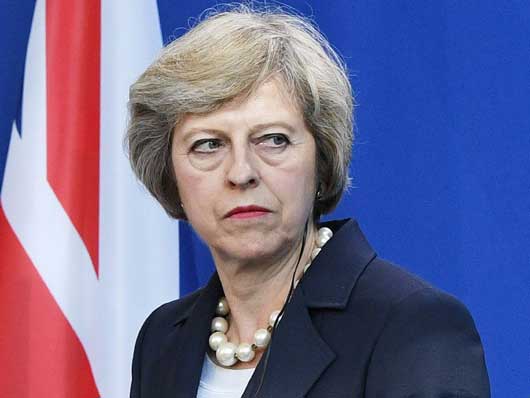Theresa May has an image problem. There is a sector of the population that like her, and it happens to be the same sector that believe in Conservatism, apparently don’t know any disabled people, have not had to resort to welfare to any great extent, and presumably live in the favoured areas that never see the effects of economic up and downturn. They see very expensive clothing, some oddly nice necklines and a grim expression and they mistake this for seriousness and competence.
Theresa May is married to a wealthy hedge fund manager. She is, therefore, not really in a position to judge what is best for you, despite resembling a Girl Guide leader.
It is interesting, as a native of another country, that this alone seems to be so persuasive for some voters. They clearly don’t hear much of what she is actually saying, otherwise they would realise that she isn’t saying all that much. Strong and stable has been replaced with delivering and achieving. Endlessly repeating the same fairly empty rhetoric is not improving her image to those of us actually listening.
Of course, the real villain of the Brexit debacle is David Cameron, for panicking about the popularity of UKIP with the little Englanders and having a referendum in the first place. Now that that referendum has been and gone, everybody including the Conservatives have to deal with it. You won’t be making that mistake again, rather unfortunately for the stupid 55% in Scotland who voted incorrectly in our referendum.
So, now that we are in this situation, and there is no way of backing down or getting away from it, we are looking at what kind of Britain we actually want to see? I assume that nobody genuinely wants to sell off our public services unless they are making money out of it. We know that in the hedge fund game, any old result will do, but what of Britain’s standing in financial servicing, insurance and the tertiary economy generally?
Many of the Brexiting voters wanted to see more manufacturing. Thanks to the fall in the pound, we already have some recovery in this respect. Indeed, as a seemingly constant jobseeker, I see more jobs at present than I have since 2001. So far, so good. Apart from general noise from some of the investment banks, who worry about finding multilingual staff in post-Brexit Britain, I do not see a lot of panic-movement.
So, one wonders, what is so wrong with a bit of vision? My historian head will tell you that 2200 Britain looks a whole lot better out of Europe than in. As I was saying yesterday, this is not much help with buying cat food, but it is certainly the reason for more thoughtful Brexit voters to have made the decision to opt out. Short term pain for long term gain is a very British thing to do, after all.
Having said this, Boris’s vision of investment in the commonwealth replacing hiding money in tax havens may be more difficult to implement. Bridges to the continent may be a friendly and subtle way of indicating that Britain is still open for business, however we cannot expect private enterprise to mop up all of the split milk.
Cutting corporation tax may not look like a public-friendly option, but 3% of something is a lot better than 23% of nothing. Therefore, whilst I am very glad old Giddypants never got to do it, I think it is important to consider this alongside some form of external savings limitation for those nearer the top of the pyramid. What we need, rather than Rees-Mogg, is more of a whizzkid figure in number 11.
So then, fellow Britishers, the die is cast. One hopes that the gamble is worthwhile, and that my fellow strategist continues to focus. Looking serious does not mean that you are serious, and the reverse is also true.

